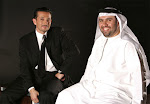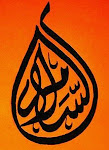Who is buying luxury properties in Hong Kong and are they to show or grow their money? According to two high-end property professionals, it is a little of both.
 Alex Chan, Manager of Residential Sales for Colliers Hong Kong said that high-end properties in traditional areas such as the Peak, Mid-Levels, Repulse Bay and Stanley are great buys ‘cause the government isn’t releasing any more land in these areas (or if it does it’s once every couple of years). So, it’s kind of like buying a townhouse on the Upper East Side of Manhattan- they’re not going to build out into the East River, nor are they going to fill in Repulse Bay anytime soon. So, what you see is what you get, and that means appreciation.
Alex Chan, Manager of Residential Sales for Colliers Hong Kong said that high-end properties in traditional areas such as the Peak, Mid-Levels, Repulse Bay and Stanley are great buys ‘cause the government isn’t releasing any more land in these areas (or if it does it’s once every couple of years). So, it’s kind of like buying a townhouse on the Upper East Side of Manhattan- they’re not going to build out into the East River, nor are they going to fill in Repulse Bay anytime soon. So, what you see is what you get, and that means appreciation.
How much and how fast? Alex says typical growth for luxury props is 10 to 15% over the next four months (emphasis added). That’s months, not years. And over the past five years, some flats for about $75 to $100 million HKD have gone up by double, and one went up five times! And in case you’re thinking that the appreciation is skewed by SARS, the fivefold increase was from before SARS, and the $100 million flat doubled since two years ago.
So who is shelling out this kind of dosh? Another luxury agent from a top property agency who wished to remain anonymous told me it broke out this way: investment banker expats, local industrialists and celebrities from entertainment, and PRC new wealth. Side question: how do PRC buyers actually buy in HK, considering it is illegal to take money out of the mainland? No answers for that one, but the fact is the PRC is a big source of luxury buyers, often for second homes and for low-rise structures that are hard to come buy in China. Hong Kong is the place to buy and to be for those with resources.
This agent laid down the reasons for Hong Kong being a strong real estate market when places like the US and UK are struggling. High savings ($5 trillion HKD), low borrowing (30% on average mortgage), mortgage rates that are lower than inflation (creating what he called negative interest rates), and prices that are generally lower than other financial capitals like NYC and London. Hong Kong is tied to US dollar and prime rate, so while US is desperately slashing rates to regain footing, Hong Kong, with its strong market, is absolutely enjoying the low rates.
And while HK real estate market slowed a bit after the Chinese New Year in reaction to stock market losses in US and here, it’s picking up again. Yesterday Celestial Heights estate in Ho Man Tin started selling flats; by 9pm, according to The Standard, they had sold 100 units for an average of $30 million each. Not a bad day’s pay.
Robert Diefendorf
President, Global Welcome, Estate Agency, Hong Kong



